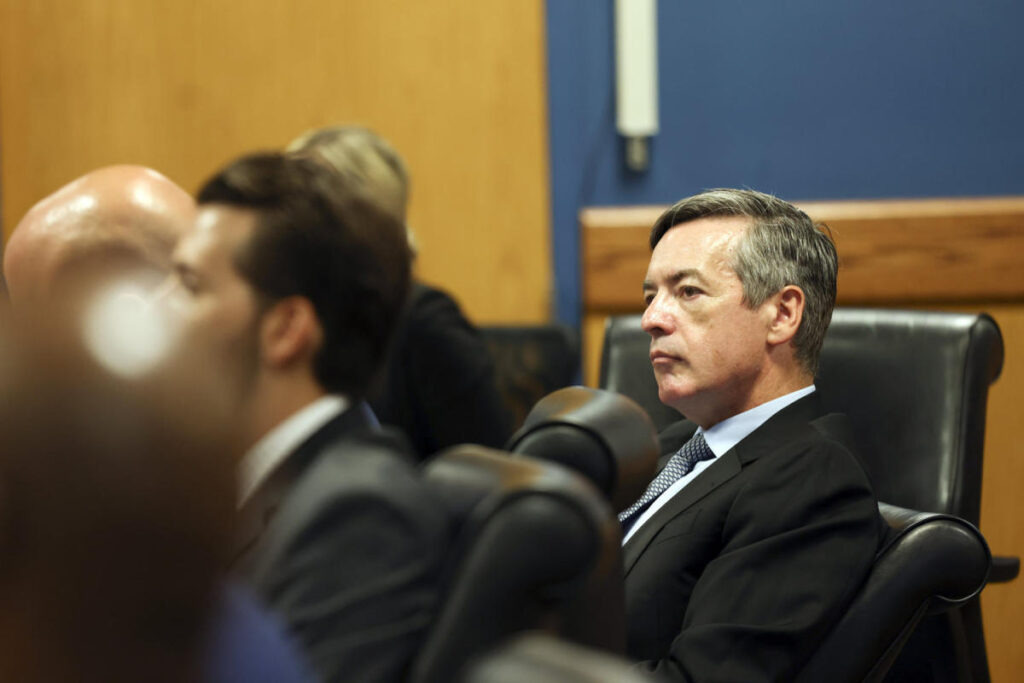On a notable day for legal ethics, a state appeals court in New York announced the suspension of Kenneth Chesebro from practicing law due to his involvement in the controversial 2020 election interference case surrounding former President Donald Trump. The court’s decision, rendered on a Thursday, was tied directly to Chesebro’s felony conviction pertaining to his efforts to overturn Trump’s electoral defeat in Georgia. The court asserted that this conviction met the stringent criteria for classifying a “serious crime” and deemed it justified to revoke his ability to practice law in the state. This suspension is effective immediately and will remain in place until further notice from the court, illustrating the serious ramifications of legal misconduct involving the integrity of democratic processes.
Chesebro was indicted as part of a larger group in August 2023, which included Trump and 17 other co-defendants, all charged with conspiracy related to attempts to disrupt the legitimate election results. While Trump has maintained a plea of not guilty, Chesebro’s legal situation became markedly altered after he entered a plea deal in October of the same year. He pleaded guilty to a count of conspiracy to commit the filing of false documents, agreeing to provide testimony against his co-defendants, a move that not only deepened his legal troubles but also positioned him within the narrative of election-related conspiracies that have engulfed American politics.
The indictment against Chesebro cited specific actions he took to facilitate the creation and promotion of false pro-Trump slates of electors across several states, including Georgia. His attorney, Scott Grubman, contested the characterization of Chesebro as the main orchestrator of attempts to undermine democracy, suggesting that it was not accurate to present him in such a light. This legal framing reflects broader tensions and divisions within the legal community regarding the ethics and responsibilities of lawyers involved in politically charged cases, particularly those challenging election outcomes.
Prior to his suspension, Chesebro already faced scrutiny from legal organizations, which filed ethics complaints against him with the New York Supreme Court’s attorney grievance committee. One notable organization, The 65 Project, highlighted the gravity of Chesebro’s actions and insisted that his potential to reoffend necessitated immediate judicial action. Following the court’s ruling, the group released a statement commending the suspension, framing it as a crucial warning to attorneys about the consequences of ethical violations and the imperative to uphold the law as it pertains to the democratic process.
Chesebro has been a licensed attorney in New York since 2007 and holds licenses in several other states, including Massachusetts, California, Texas, Florida, and Illinois. However, his recent suspension is not an isolated case but part of a broader trend indicating that legal practitioners who have endeavored to subvert election outcomes are facing disciplinary action. For instance, Rudy Giuliani, an attorney closely associated with Trump’s legal strategies post-election, lost his license in New York and was also disbarred in Washington, D.C. Similarly, Jenna Ellis, another attorney linked to Trump’s efforts, was banned from practicing law in Colorado for a specified period.
The ongoing repercussions of the 2020 election and the legal battles that have ensued reveal critical issues surrounding the conduct of lawyers in politically sensitive situations. The suspension of Kenneth Chesebro serves as both a response to individual wrongdoing and as a warning to the legal community about the vital importance of maintaining ethical standards in the wake of unprecedented electoral challenges. These developments not only affect those directly involved but also reflect broader societal concerns regarding the intersection of law, politics, and the integrity of democracy. As legal cases continue to unfold, the implications for attorneys engaged in similar conduct will likely prompt further scrutiny and possibly lead to more significant reforms within the legal profession.

